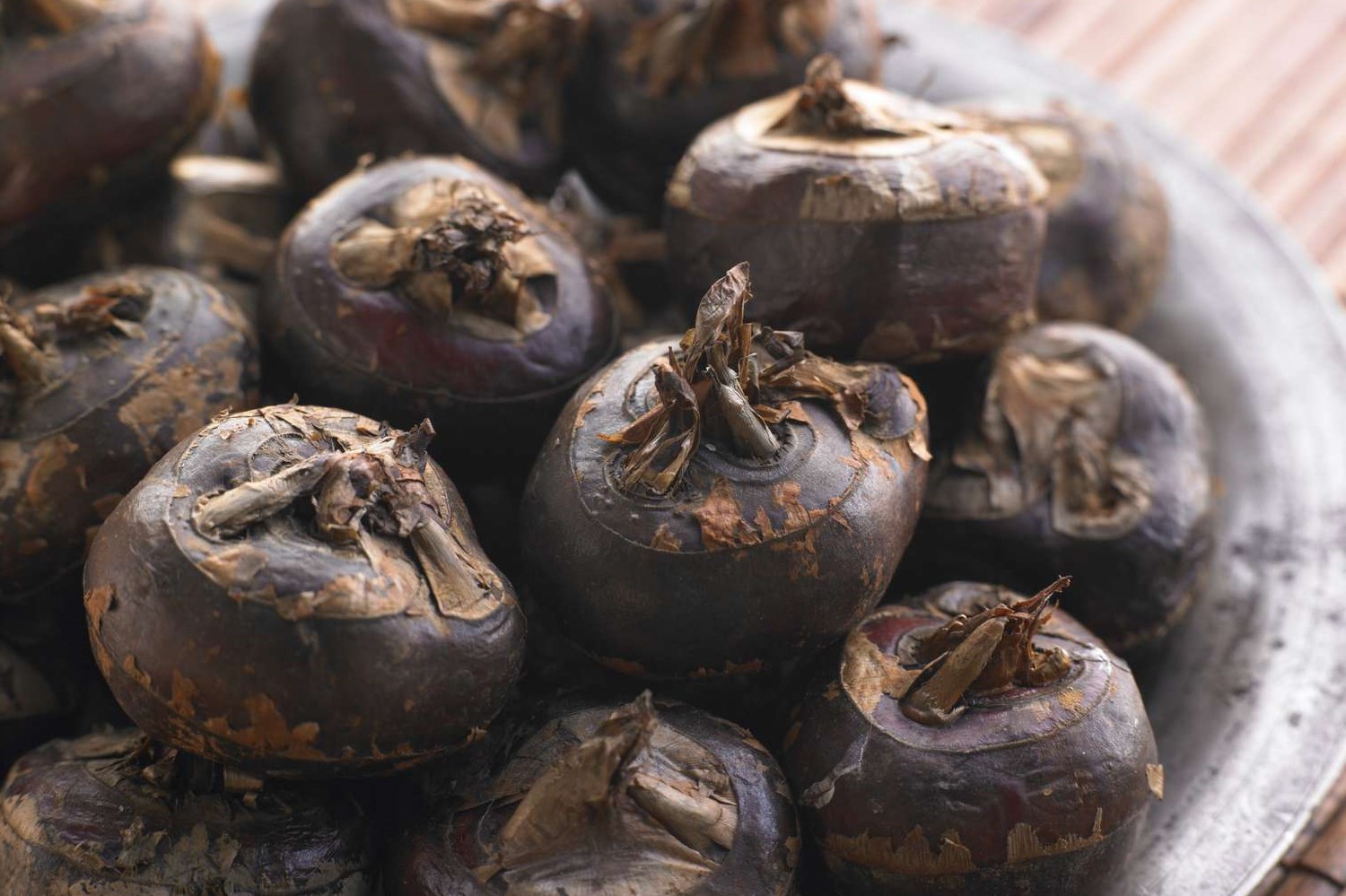
Water chestnuts are more than just a crunchy addition to your stir-fry. These aquatic vegetables, often mistaken for nuts, have a fascinating history and numerous health benefits. Originating from Southeast Asia, water chestnuts have been a staple in Asian cuisine for centuries. They grow in marshes, under water, and are harvested for their crisp, white flesh. But did you know that water chestnuts are low in calories and high in fiber? They also contain antioxidants that can help fight inflammation. Whether you enjoy them fresh, canned, or in a savory dish, water chestnuts offer a unique texture and a subtle sweetness that can elevate any meal.
Key Takeaways:
- Water chestnuts are not nuts, but crunchy vegetables. They're packed with fiber, low in calories, and gluten-free, making them a healthy and versatile ingredient in many dishes.
- Cultivating water chestnuts can help the environment, but it's important to manage their growth to prevent them from becoming invasive. Researchers are working on sustainable farming methods for this unique vegetable.
What is a Water Chestnut?
Water chestnuts are aquatic vegetables that grow in marshes, ponds, and shallow lakes. They are known for their crunchy texture and slightly sweet flavor. Let's dive into some fascinating facts about this unique plant.
-
Water chestnuts are not nuts. Despite their name, they are actually corms, which are underground storage organs of the plant.
-
They belong to the sedge family, Cyperaceae. This family includes other grass-like plants often found in wetlands.
-
The scientific name for water chestnut is Eleocharis dulcis. This name reflects its botanical classification.
-
Water chestnuts have been cultivated for over 3,000 years. They originated in Southeast Asia and have been a staple in Asian cuisine.
-
They can be eaten raw or cooked. Their versatility makes them a popular ingredient in many dishes.
Nutritional Benefits of Water Chestnuts
Water chestnuts are not only tasty but also packed with nutrients. Here are some health benefits they offer.
-
They are low in calories. One cup of sliced water chestnuts contains only about 97 calories.
-
Water chestnuts are rich in fiber. This helps with digestion and can keep you feeling full longer.
-
They contain antioxidants. These compounds help protect your cells from damage caused by free radicals.
-
They are a good source of potassium. This mineral is essential for maintaining healthy blood pressure levels.
-
Water chestnuts are gluten-free. This makes them a great option for people with gluten sensitivities or celiac disease.
Growing and Harvesting Water Chestnuts
Cultivating water chestnuts requires specific conditions. Here are some interesting facts about their growth and harvest.
-
They grow in waterlogged fields. These fields are similar to those used for growing rice.
-
Water chestnuts are typically planted in spring. The growing season lasts about seven months.
-
Harvesting is done by hand. Workers wade through the water to collect the corms from the muddy bottom.
-
They can yield up to 7,000 pounds per acre. This makes them a highly productive crop.
-
After harvesting, water chestnuts are washed and peeled. This process prepares them for sale and consumption.
Culinary Uses of Water Chestnuts
Water chestnuts are a versatile ingredient in many cuisines. Here are some ways they are used in cooking.
-
They add crunch to stir-fries. Their texture remains crisp even after cooking.
-
Water chestnuts are used in salads. They provide a refreshing crunch to various salad recipes.
-
They are a key ingredient in Chinese dim sum. Water chestnut cakes are a popular dim sum dish.
-
Water chestnuts can be ground into flour. This flour is used in some traditional Asian recipes.
-
They are often used in soups. Their mild flavor complements many types of broth.
Environmental Impact of Water Chestnut Cultivation
Growing water chestnuts can have both positive and negative effects on the environment. Here are some facts to consider.
-
They can help control soil erosion. The dense growth of water chestnut plants stabilizes the soil in wetland areas.
-
Water chestnut fields provide habitat for wildlife. Birds and aquatic animals often thrive in these environments.
-
However, they can become invasive. In some regions, water chestnuts spread rapidly and outcompete native plants.
-
Sustainable farming practices are essential. Proper management can minimize the environmental impact of water chestnut cultivation.
-
Research is ongoing to improve cultivation methods. Scientists are working to develop more sustainable and efficient ways to grow water chestnuts.
Water Chestnuts: A Crunchy Delight
Water chestnuts aren't just a crunchy addition to your stir-fry. They pack a punch with nutrients like fiber, vitamin B6, and potassium. These aquatic veggies can thrive in wet, marshy areas, making them a unique crop. They’ve been a staple in Asian cuisine for centuries, adding texture and flavor to dishes.
Beyond the kitchen, water chestnuts have medicinal uses too. Traditional medicine often uses them to treat digestive issues and skin conditions. Plus, they’re low in calories, making them a great snack for those watching their weight.
Next time you see water chestnuts at the store, grab a can or two. Experiment with them in your meals. You might just find a new favorite ingredient. So, whether you're a foodie or just curious, water chestnuts offer something for everyone.
Frequently Asked Questions
Was this page helpful?
Our commitment to delivering trustworthy and engaging content is at the heart of what we do. Each fact on our site is contributed by real users like you, bringing a wealth of diverse insights and information. To ensure the highest standards of accuracy and reliability, our dedicated editors meticulously review each submission. This process guarantees that the facts we share are not only fascinating but also credible. Trust in our commitment to quality and authenticity as you explore and learn with us.


